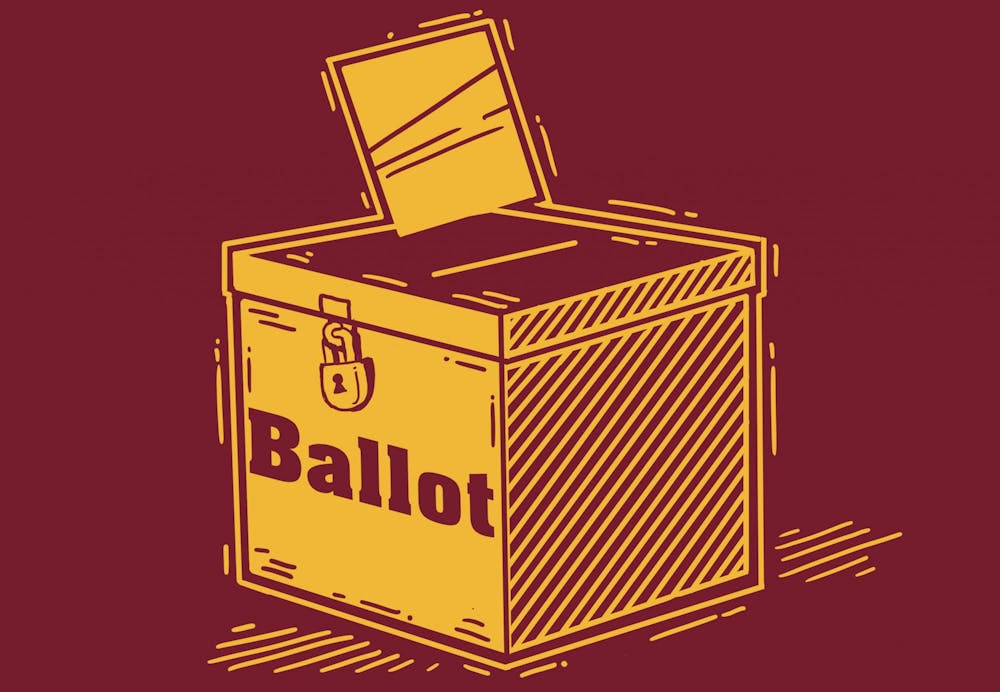After this year's Undergraduate Student Government election results were announced on March 31, The State Press analyzed the platforms of all four winning USG executive tickets and 20 of 40 senate candidates who responded to requests for comment.
The main priority for this year's candidates, including those who didn't win, was improving student engagement with USG by creating initiatives that ensure student constituents are informed about the role of student government and its services.
Candidate platform data
Around 50% of candidates with available priorities or who responded to requests for comment had a platform that related to increasing awareness about USG and the services it provides.
Around 29% of candidates had a platform related to tuition and finance. Mental health and transparency were platforms that had the support of 21% of candidates. Around 17% of candidates had platforms related to increasing the representation of people of color in USG.
Around 13% of candidates had a platform related to the rape crisis center. Around 8% of candidates who responded had a platform related to sustainability and student safety.
Increasing awareness of USG
The Kalthoff executive ticket, which will serve Tempe, wants to create a more transparent relationship between USG Tempe and the student body by making student government resources known to the public.
The ticket, with Andrew Kalthoff as president, Brooke Meier as vice president of service and Morgann Kelly as vice president of policy, considers communication an "essential" part of the relationship between students and USGT. Their platform recognizes the "plentiful array of resources that are not fully utilized by the general student population — at no fault of their own."
Several senate candidates said it is important students know about the resources USGT can provide them.
Julius Woart, a sophomore studying software engineering, was elected to the USG Polytechnic senate representing the Ira A. Fulton Schools of Engineering for the second time. Woart wants to encourage students to be more vocal about their concerns.
"I would like to see more students voice their opinions in the decisions made by the Senate, which would benefit the whole student community," Woart wrote in an email. "I also want to make sure that students have a voice in the decisions that the College administration makes."
Grace Reiter, a freshman studying sustainability, was elected as a USGT senator for the College of Global Futures. Reiter campaigned on organizing events where students will have the opportunity to meet with student government representatives.
"I know personally, a lot of my friends don't even know who John (Hopkins) is, and he's the president," Reiter said. "I think we should all know that. These people are important and they're doing things every day to better ASU."
Why prioritize student engagement?
Joshua Valenzuela, a junior studying politics and the economy, advised the Kalthoff ticket about the election code. While being involved with USG in some capacity over the last two years, Valenzuela has seen candidates run on the platform of increasing awareness of USG to get more support, but remains skeptical.
"It's nice, and it's definitely a cool thought and a great idea. But there's never really much detail that goes into it," Valenzuela said.
As the assistant elections commissioner for Tempe last year, Valenzuela said his team spoke about increasing awareness of USG as student voter turnout is a metric of success for the elections team.
ASU's Tempe campus has almost 55,000 students and across all four campuses, student voter turnout has never broken more than 7,000 votes in the past three years.
In this year's election, over 1,600 students voted for executive ticket positions across all campuses — 2,600 fewer votes than last year's.
READ MORE: All student government executive tickets to run unopposed in 2022 election
Similar to many of this year's candidates, USG Tempe Senate President Marco Huerta, a senior studying public policy and political science, has also noticed students don't know ASU has student government, underscoring the importance of student engagement.
"To be honest, there are a lot of students that don't know what student government is," Huerta said. "The individuals who tend to know what student government is tend to come from a very niche group of students or student groups that are very connected to what USG already does or who's already in USG."
Tori Gantz, Shane Brennan and James Doyle Brown Jr. contributed to the reporting of this story.
Reach the reporters at mcfisch4@asu.edu and awaiss@asu.edu and follow @morgfisch and @WaissAlexis on Twitter.
Like The State Press on Facebook and follow @statepress on Twitter.

Morgan Fischer is the politics editor, she works with her desk to cover topics related to politics in the ASU community. She has previously worked as an intern for RightThisMinute.

Alexis Waiss is an assignment editor and senior reporter, covering breaking news and writing long-form stories. Alexis worked on SP's politics desk for a year, where she reported on the Legislature, higher education policy, student government, the city of Tempe and stories highlighting social justice. She previously worked as a fellow for the Asian American Journalist Association's VOICES program.




